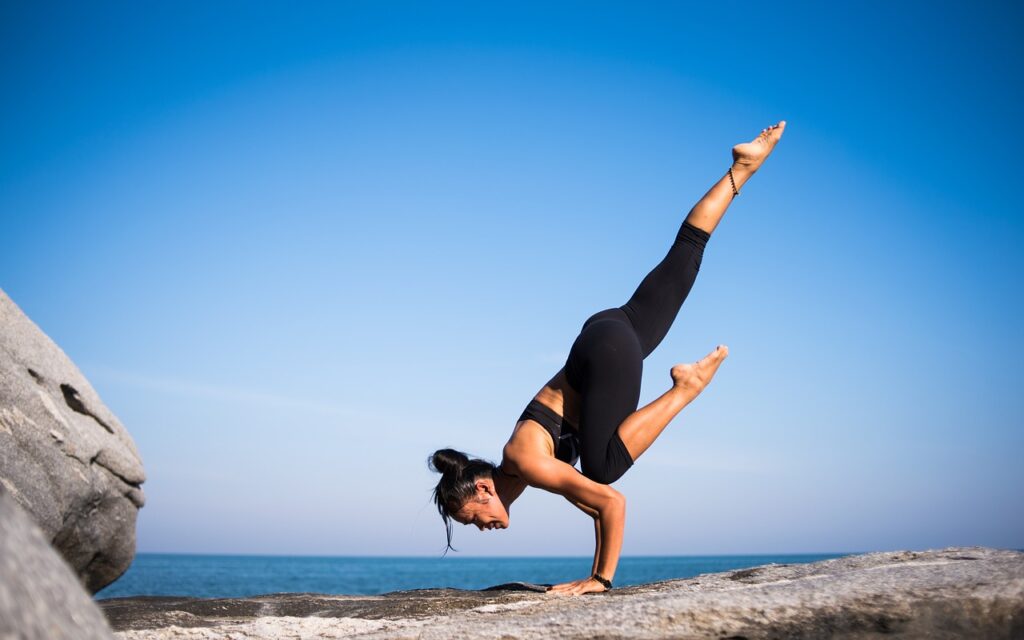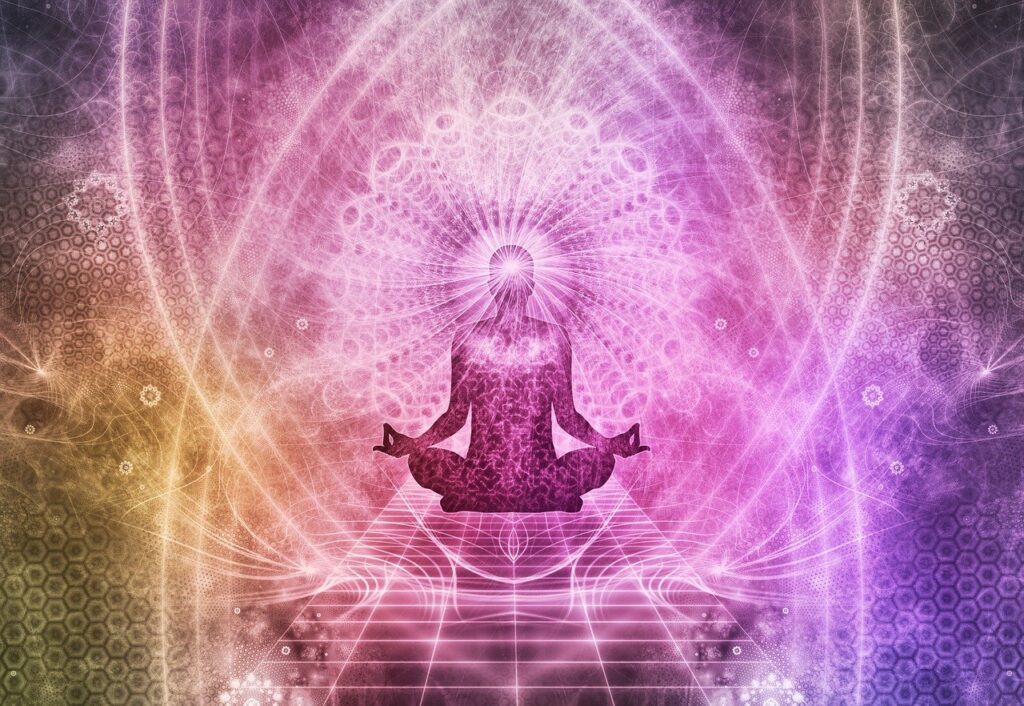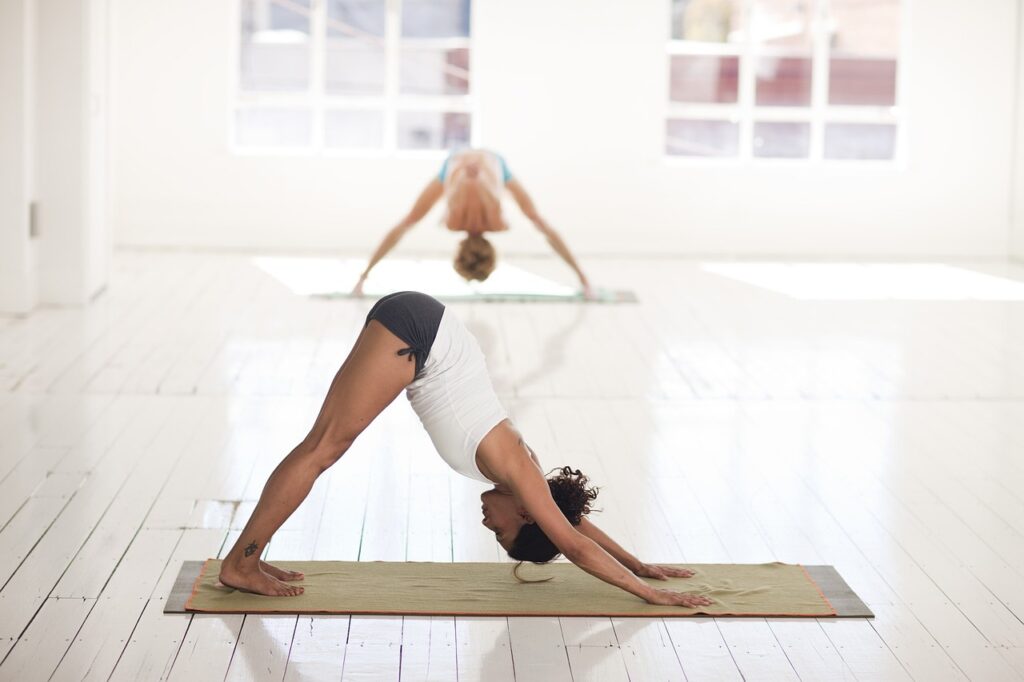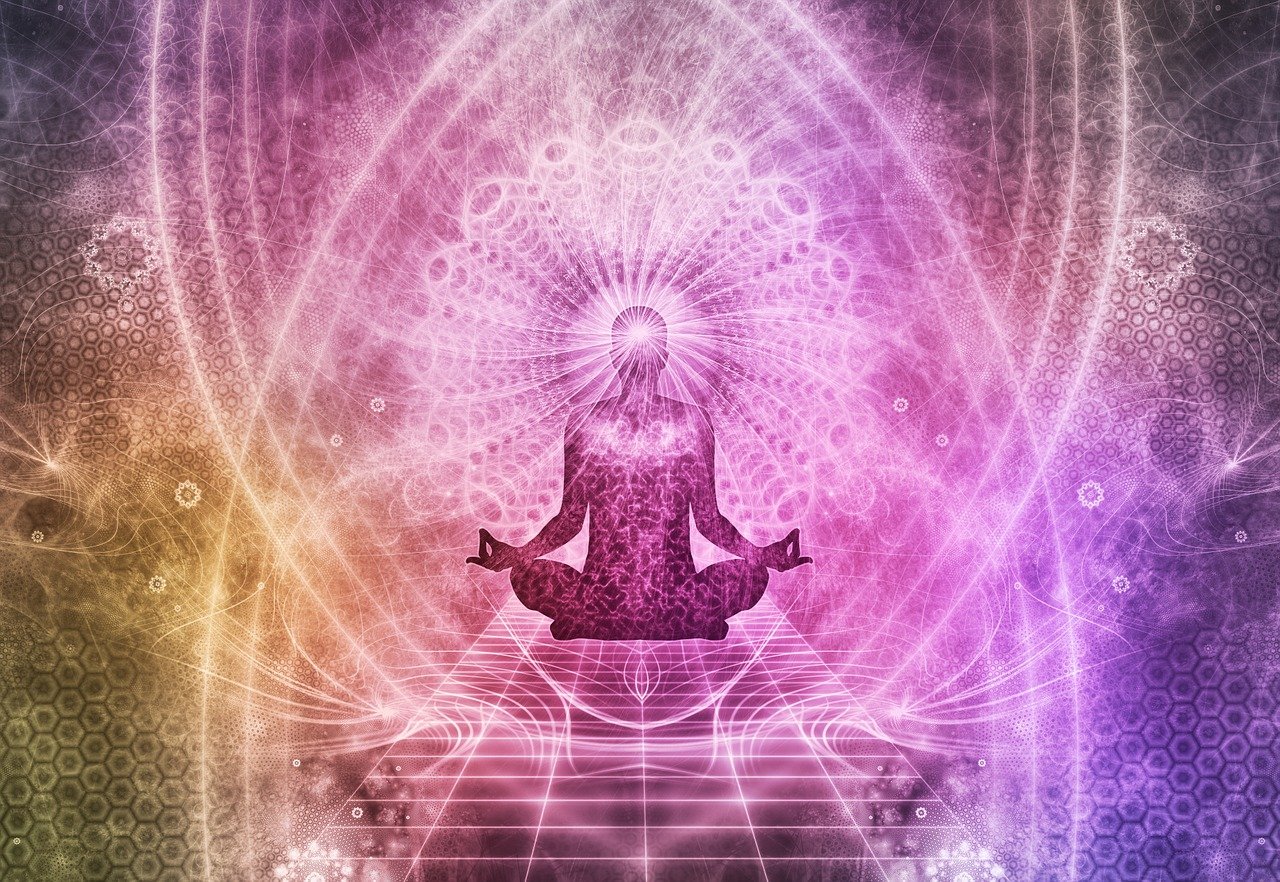Have you ever wondered how yoga perceives the idea of aging and longevity? As we traverse through life, the notion of growing old can often elicit mixed emotions and uncertainties. However, yoga offers a unique perspective on this natural process, embracing both the physical and spiritual aspects of aging. By honoring the present moment and cultivating mindfulness, yoga encourages us to navigate the journey of life with grace and inner strength. Let’s explore how yoga views the concept of aging and longevity, and discover the wisdom it imparts for leading a fulfilling and vibrant life.

Yoga’s Perspective on Aging and Longevity
The Philosophical View
Yoga, with its rich philosophical heritage, offers a unique perspective on aging and longevity. According to yoga, aging is seen as a natural part of life, and rather than fearing it, yoga encourages embracing the process. Yoga teaches that every individual has a purpose and that aging is an opportunity to connect with the deeper aspects of oneself.
In the philosophical view of yoga, longevity is not just about the number of years lived but also about living a meaningful and purposeful life. Yoga believes that true longevity lies in the quality of our existence, rather than merely the quantity of years. By cultivating a positive and accepting mindset towards aging, yoga aims to empower individuals to age gracefully and with a sense of purpose.
The Physical Perspective
From a physical perspective, yoga recognizes the importance of maintaining a healthy body to support the aging process. Through the practice of asanas, or physical poses, yoga helps to keep the body flexible, strong, and balanced. Regular yoga practice can improve joint mobility, increase flexibility, and enhance overall physical fitness, allowing individuals to navigate the challenges of aging with greater ease.
Additionally, yoga encourages mindful movement and breath awareness, which can reduce the risk of injuries and promote body awareness. As individuals age, it becomes increasingly important to maintain muscle mass and bone density, and yoga can help strengthen these areas through weight-bearing poses.
The Mental and Emotional Aspect
Yoga also focuses on the mental and emotional aspects of aging, acknowledging that one’s mindset plays a crucial role in overall well-being. As individuals age, they may face various challenges such as loss of loved ones, changes in physical abilities, and a shift in roles and responsibilities. Yoga offers a range of tools and techniques to promote mental and emotional resilience, allowing individuals to navigate these changes with grace and equanimity.
Through meditation and mindfulness practices, yoga helps individuals cultivate a calm and focused mind, reducing stress and anxiety that may accompany the aging process. Yoga encourages self-reflection and self-awareness, helping individuals develop a deeper understanding of themselves and their emotions. By fostering emotional stability and promoting self-acceptance, yoga supports individuals in embracing the aging process with compassion and grace.
Yoga and Holistic Well-being
Balancing Mind and Body
Yoga emphasizes the importance of balancing both the mind and body to achieve holistic well-being. As individuals age, it becomes crucial to maintain harmony between these aspects of existence. Through the practice of asanas, pranayama (breathing exercises), and meditation, yoga helps individuals cultivate this balance, fostering a sense of overall well-being.
The Role of Diet and Lifestyle
Yoga recognizes that diet and lifestyle choices play a significant role in maintaining health and vitality as we age. A well-balanced and nourishing diet, along with regular exercise and adequate rest, supports the body’s natural ability to heal and regenerate. Yoga encourages a mindful approach to eating, emphasizing the consumption of whole, nutrient-dense foods that promote vitality and longevity.
Promoting Emotional Well-being
In addition to physical and dietary aspects, yoga recognizes the importance of emotional well-being for overall health. Negative emotions and stress can have a detrimental impact on the body and mind, leading to various health issues. Through practices such as meditation, pranayama, and self-reflection, yoga helps individuals cultivate equanimity, emotional stability, and a positive mindset, promoting overall emotional well-being.
Yoga Practices for Healthy Aging
Asanas (Physical Poses)
Asanas, or physical poses, are a fundamental aspect of yoga practice, offering numerous benefits for healthy aging. Yoga poses help improve flexibility, strength, and balance, supporting overall physical fitness and reducing the risk of injuries. Asanas also promote joint mobility, helping to alleviate stiffness and discomfort associated with aging. Regular practice of yoga poses can enhance mobility and prevent age-related muscle and joint issues, allowing individuals to maintain an active and vibrant lifestyle.
Pranayama (Breathing Exercises)
Pranayama, the practice of breath control, is an integral part of yoga that can significantly impact overall well-being, including the aging process. As individuals age, respiratory function may decline, leading to decreased lung capacity and oxygen uptake. Pranayama practices help individuals strengthen their respiratory muscles, improve lung capacity, and enhance oxygenation, contributing to healthy aging. Additionally, pranayama practices promote relaxation, reduce stress, and increase mental clarity, supporting overall mental and emotional well-being.
Meditation and Mindfulness
Meditation and mindfulness practices offer powerful tools for healthy aging. As individuals age, they may experience cognitive changes and an increased risk of mental health issues. Regular meditation practice has been shown to enhance cognitive function, improve attention and memory, and reduce the risk of age-related cognitive decline. Meditation also promotes emotional resilience, reducing stress and anxiety and fostering a sense of inner peace and contentment.
Yoga’s Impact on Age-Related Ailments
Reducing Joint Stiffness
As individuals age, joint stiffness and discomfort can become a common occurrence. Regular yoga practice can help alleviate these symptoms by improving joint mobility and flexibility. Yoga poses gently stretch and strengthen the muscles and connective tissues surrounding the joints, reducing stiffness and promoting ease of movement.
Improving Flexibility and Balance
Flexibility and balance are essential for maintaining independence and preventing falls in older adults. Yoga poses, with their focus on stretching and body awareness, help improve flexibility and balance, reducing the risk of injuries. As individuals age, maintaining flexibility and balance becomes increasingly important, and regular yoga practice can significantly enhance these areas, promoting overall physical well-being.
Strengthening Bones and Muscles
Osteoporosis and muscle weakness are common challenges faced by aging individuals. Yoga poses that incorporate weight-bearing exercises help strengthen bones and muscles, reducing the risk of fractures and maintaining muscle mass. By challenging the body in a safe and progressive manner, yoga supports bone health and muscle strength, offering a natural and holistic approach to combating age-related ailments.

Yoga for Mental and Emotional Resilience
Enhancing Cognitive Function
Cognitive decline is a concern as individuals age, with conditions such as dementia and Alzheimer’s becoming more prevalent. Yoga, through its mindful movement and meditation practices, helps enhance cognitive function and brain health. By promoting mental focus, attention, and memory, yoga can contribute to maintaining cognitive abilities and reducing the risk of age-related cognitive decline.
Promoting Emotional Stability
Mental health issues, such as depression and anxiety, can also become more common in older adults. Yoga provides a holistic approach to emotional well-being, offering tools to manage stress, reduce anxiety, and enhance emotional stability. Through practices such as meditation, breathwork, and self-reflection, yoga promotes a positive mindset, emotional resilience, and a greater sense of inner peace.
Reducing Stress and Anxiety
Stress and anxiety can have detrimental effects on both physical and mental health, particularly as individuals age. Yoga offers practical techniques to manage stress and anxiety, such as deep breathing exercises, relaxation techniques, and mindfulness practices. By cultivating a calm and centered mind, yoga helps individuals reduce stress levels, enjoy a greater sense of overall well-being, and improve their quality of life.
The Role of Yoga in Longevity
Connecting with Inner Self
Yoga encourages individuals to connect with their inner selves, fostering self-awareness and self-acceptance. By exploring the deeper aspects of ourselves and uncovering a sense of purpose, yoga supports individuals in living a life of meaning and fulfillment. This connection with the inner self promotes a greater sense of contentment and joy, contributing to overall well-being and longevity.
Promoting a Positive Outlook
A positive mindset is crucial for healthy aging and longevity. Yoga practices, such as affirmations, gratitude exercises, and meditation, help individuals cultivate a positive outlook on life. By focusing on the present moment and embracing each day with gratitude, yoga promotes a positive mindset, resilience, and a greater appreciation for the beauty of life.
Creating a Balanced Lifestyle
Yoga recognizes the importance of balance in all aspects of life. By incorporating yoga into our daily routine, individuals can create a balanced lifestyle that supports longevity and overall well-being. Following the principles of yoga, such as moderation, self-care, and mindfulness, can help individuals maintain a healthy balance between work, relationships, leisure, and self-care, promoting longevity and fulfillment.

Yoga and Aging in Overall Well-being
Enhancing Quality of Life
Yoga has a profound impact on the overall quality of life, especially as individuals age. By addressing physical, mental, and emotional aspects of well-being, yoga helps individuals enjoy a higher quality of life and experience greater fulfillment. The physical benefits of increased flexibility, balance, and strength, coupled with emotional stability and cognitive enhancement, contribute to an enhanced sense of well-being and vitality.
Promoting Independence and Self-sufficiency
Maintaining independence and self-sufficiency is a significant concern for aging individuals. Regular yoga practice can help individuals maintain physical strength, flexibility, and balance, reducing the risk of falls and ensuring independence in daily activities. Furthermore, yoga’s focus on mental and emotional well-being promotes a sense of self-confidence and empowerment, further supporting independence and self-sufficiency.
Fostering a Sense of Purpose
As individuals age, it is common to question one’s purpose in life. Yoga offers a path for self-discovery and continued growth, fostering a sense of purpose and meaning. The practices of self-reflection, meditation, and mindful living help individuals connect with their inner wisdom and uncover their unique purpose. This deep sense of purpose provides a sense of direction and fulfillment, contributing to overall well-being and a positive outlook on aging.
Yoga for the Elderly and Aging Population
Adapting Asanas and Practices
Yoga practices can be adapted to meet the specific needs and limitations of the elderly and aging population. Asanas can be modified to accommodate physical limitations and ensure safety. Props and modifications can be used to provide support and make poses more accessible. Yoga instructors experienced in working with this population can guide individuals through tailored practices, promoting physical, mental, and emotional well-being.
Addressing Specific Needs and Limitations
The elderly and aging population may have specific needs and limitations that require special attention. Yoga practices can be tailored to address these needs, such as focusing on joint mobility, balance, and fall prevention. Gentle movements, chair yoga, and restorative practices can be incorporated to cater to individuals with limited mobility or medical conditions. By addressing specific needs and limitations, yoga can offer a safe and effective practice for the elderly.
Creating a Supportive Environment
Creating a supportive and inclusive environment is essential when introducing yoga to the elderly and aging population. Yoga classes can be designed to cater specifically to this demographic, ensuring that the pace, instruction, and atmosphere are conducive to their needs. Cultivating a sense of community and support within the yoga setting can further enhance the overall well-being and enjoyment of the practice for the elderly and aging population.
Beyond Physical Fitness: Yoga’s Wholistic Approach
Aligning Body, Mind, and Spirit
Yoga embraces a holistic approach, acknowledging the interconnectedness of the body, mind, and spirit. By integrating physical movement, breath awareness, and mindfulness, yoga aligns these aspects of existence, promoting overall well-being and vitality. Through the practice of yoga, individuals can experience a sense of unity and harmony within themselves, fostering a deeper connection with their bodies, minds, and inner selves.
Cultivating Self-acceptance and Love
In a society that often associates aging with decline, yoga provides a platform for self-acceptance and self-love. By embracing the natural aging process and cultivating self-compassion, individuals can overcome societal expectations and judgments surrounding aging. Yoga encourages individuals to appreciate and honor their bodies, no matter their age, fostering a sense of self-acceptance, love, and gratitude for the wisdom and experiences that come with age.
Nurturing Inner Wisdom
As individuals age, they accumulate a wealth of knowledge and wisdom. Yoga recognizes and nurtures this inner wisdom, encouraging individuals to tap into their innate knowledge and intuition. Through practices such as meditation, self-reflection, and mindful living, yoga supports individuals in accessing their inner wisdom and living authentically. This connection with one’s inner wisdom provides a sense of guidance, purpose, and fulfillment throughout the aging process.
Conclusion
Yoga offers a unique and comprehensive perspective on aging and longevity. From a philosophical standpoint, yoga encourages embracing the aging process and finding purpose and meaning in each stage of life. From a physical perspective, yoga helps maintain flexibility, strength, and balance, supporting overall physical well-being. Emotionally and mentally, yoga promotes resilience, positivity, and emotional stability. By incorporating yoga into daily life, individuals can age gracefully, cultivate holistic well-being, and embrace the wisdom and fulfillment that come with age.

